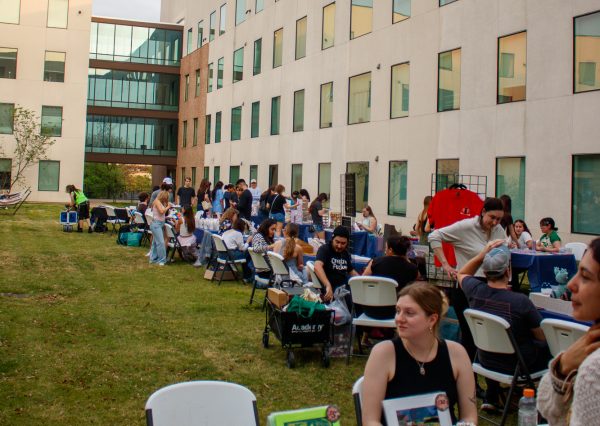Chile natives provide education student new family experiences abroad
As she stepped in through the doorway of her host family’s home, Kali Wortham discerned her host mother’s daily reminder to switch over to house shoes. Wortham laughed as she recalled her host mother’s rules.
“She would be like ‘wear your shoes,’” Wortham said. “I tried to wear socks, but that wasn’t enough.”
Wortham, a junior at St. Edward’s, is an early childhood through sixth grade education major and spanish minor. She ventured off to Chile on a provider program this past fall semester.
Although Wortham remembers her trip with joy, she also recalls some culture variances that required some acclimation. As Spanish is her second language, speaking the language day-to-day required Wortham to master her minor at a faster pace.
“The first two weeks the hardest things to get used to was the language barrier,” Wortham said. “[My host mother] was so excited. I sat there and I was like ‘Oh my God,’ I could not say a word.”
While Wortham recalls the struggle to adapt to Spanish, she decided on Chile for the purpose of engulfing her life in Spanish.
“I chose Chile because compared to other Spanish speaking countries, I would be forced to learn Spanish,” Wortham said. “Our professor Faunes is from Chile, so that really sparked an interest. She said good things. That’s kind of my little connection to it.”
Professor Regina Faunes is an associate professor of Spanish at St. Edward’s. She teaches basic Spanish language courses as well as culture and history classes such as “Dictators and Democracies in Latin America” and crafted courses to the Spanish curriculum since 2004.
When asked about her overall experience, Wortham extolled the qualities of the South American nation.
“It’s such a great country to study abroad in,” Wortham said. “People are very understanding and grateful to get to know you. It’s also the most beautiful place I have ever been.”
For Chile day trips, Wortham recommends taking advantage of the diverse landscapes Chile has to offer.
“I went surfing a lot and it was fairly cheap to travel around Chile,” Wortham said. “It has something for everybody.”
Wortham took the opportunity to travel to other local countries such as Argentina and Peru, specifically Citadel of Machu Picchu. Her diet consisted of torres de patigoin, chocican, a stew of vegetables and a soup named casuela.
“We would eat like a big meal at 2:30,” Wortham said. “They eat once at 8:30 something light. Tons of bread, too.”
In terms of course load, Wortham undertook classes such as Intermediate Writing, Intermediate Spanish Communication, Advanced Grammar in Spanish and Human Rights in Latin American.
“I was in the international part of the university and most of the people were American,” Wortham said. “I made really good friends with the Americans that were also on the program. Just meeting Chileans was nice.”
Wortham mentioned that one of the highlights of her trip was spending time with her host family.
“My huge takeaways were that I loved my host family. I had a little brother and sister and I just want to encourage people to not be scared to study abroad,” said Wortham“To not be afraid of going somewhere where you don’t know the language. It literally changed my life.”
Wortham offers some advice to students considering studying abroad in Chile.
“When you go to a new place, you get to experience it. It becomes more authentic. It feels really good to communicate with people in their language in their culture.”






